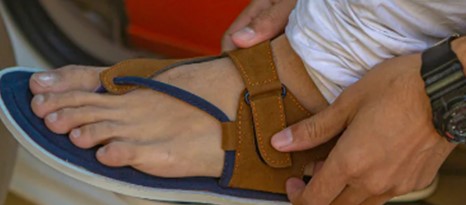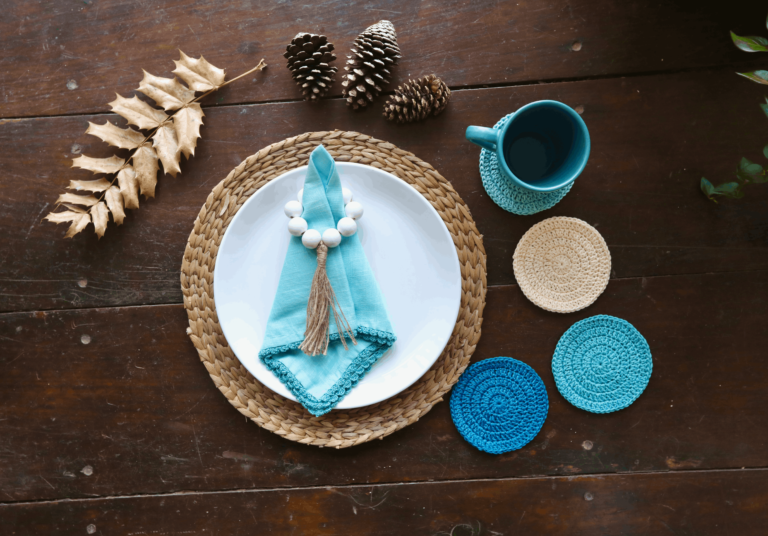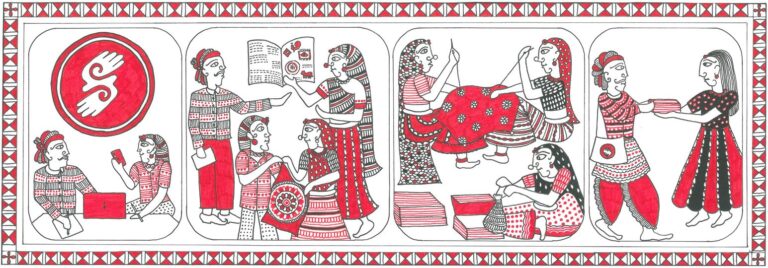Shoegaro is a cultural enterprise acting as a platform for artisans to sell handmade footwear. Based in Agra, it aims to increase the livelihood of the local artisans skilled in the area of handmade shoemaking. So far, almost 250 artisan families have been positively impacted through Shoegaro. Ankit Kumar, Dr. Hifza Afaq and Gagan Mukhi – the founders of Shoegaro aim to uphold the Indian art of shoemaking, while making it affordable for customers as well as profitable for the artisans involved. Shoegaro is currently a B2B brand with customers spanning all over India.
Catch our conversation with Ankit, as he talks about the inception of Shoegaro, the state of artisans in this industry and the challenges that came along while setting up this private enterprise. Ankit is also an Acumen Fellow since March 2021 and believes change is inevitable when like-minded people come together.
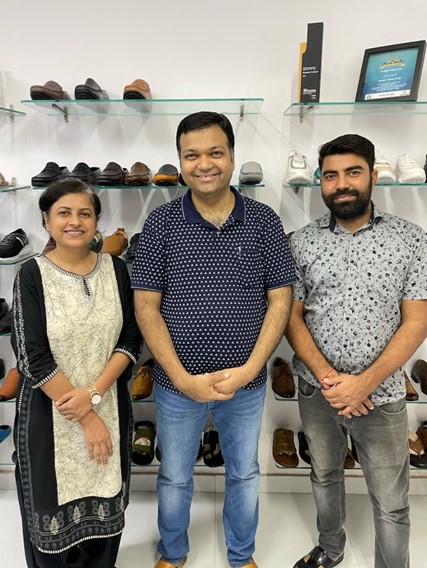
Allured to shoemaking: Before the birth of Shoegaro
I was working in the pharmaceutical industry for almost 14 years. My last job position was based in Agra, where I was exposed to its noteworthy art of shoemaking. I met with lots of businessmen throughout my job here, which made me want to start an enterprise myself. So, I quit my job in 2011 and set up quite a few businesses before shoemaking once again caught my eye.
I was also pursuing an MBA from the Dayalbagh Educational Institute, Agra through the means of distance education. At DEI, I met Gagan who introduced me to a then footwear brand – HITZ. Because of my extensive experience in sales and marketing, I was asked to help out with their social media marketing and brand building. Slowly I gained a few customers from around the area and I started a consultancy business to help domestic brands with their online marketing and promotions.
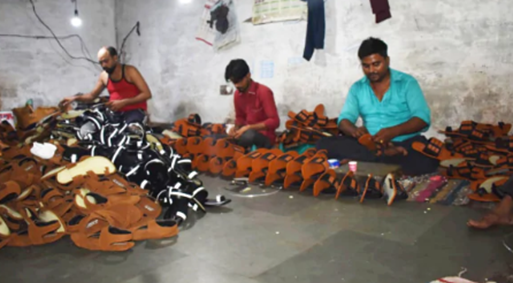
Stories of the plummeting footwear industry: Motivation behind starting Shoegaro
I would constantly visit their factories in order to better understand their set-up and build a story for the brand. During these visits, I talked to a few artisans who were working as labourers to earn an income. I learned that most of them were skilled at hand-crafting shoes, but were forced to give it up because of lack of customer traffic. I wanted them to revive their cottage industry for shoes and market this handcrafted industry all over the country. So in 2017, we started Shoegaro to create a platform for artisans to sell hand-made footwear.
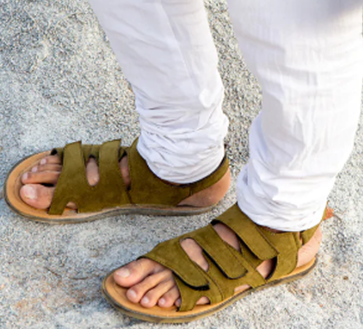
Profit-oriented motivation turned impactful
When we started doing well on Flipkart and Amazon, I could see artisans being greatly impacted with the income flowing in. In 2019, I fully quit my consultancy business and we eventually registered Shoegaro Fashions Private Limited to promote our D2C and B2C business with our brand Shoegaro.
Working with artisans was more beneficial than tying up with factories because a purchase from the former could be as small as 8 pairs of styles of footwear.
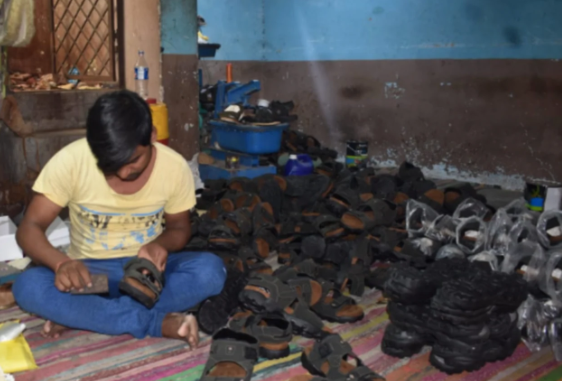
To avoid buying and withholding as many as 48 different styles from factory produce, I decided to connect with more artisans to get an assorted collection at the cost of low inventory. This way we were able to sell a myriad of designs on the website – while making profit as well as impacting more and more artisans along the way.
Funding and the path leading to a B2B model
Our business was going well in 2019 when we kicked off, but come COVID, our market had reduced drastically. Even a small break in online promotions set us back for a long time. So we diverted around 10% of our business towards B2B for this period. However, holding inventory was still an issue. In November 2020, we received $50,000 funding from Upaya Social Ventures – an American funding organisation.
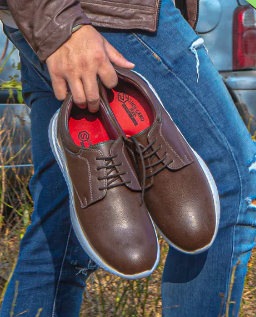
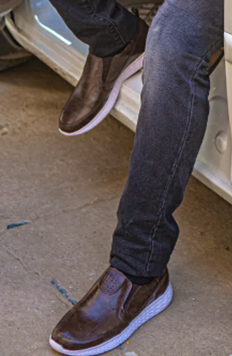
When the second wave hit India around March 2021, a hit in sales provoked us to invest in B2B completely. This led to our own B2B platform under the brand name Karigar Mandi.
We are incubated and funded by IIM Calcutta Innovation Park as well as CIIE.CO IIM Ahmedabad at this point of time, successfully closing the financial year 2021-2022 with excellent sales.
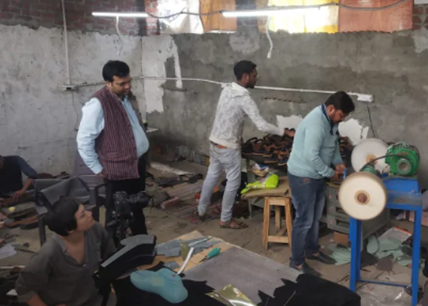
From selling shoes to soaring household incomes
A survey conducted with the help of Upaya Social Ventures revealed an increase of 260% in the household income of the artisans employed. Despite currently having lesser women artisans, their increase in income was an astonishing 460%. This made us really happy and grateful for what we built so far. We are in talks with NGOs working in the footwear handicraft industry to help us extend this idea in different states. We also assisted Kolhapuri slipper artisans in northern Karnataka with procurement of modern assistive hand tools, machines and designers.
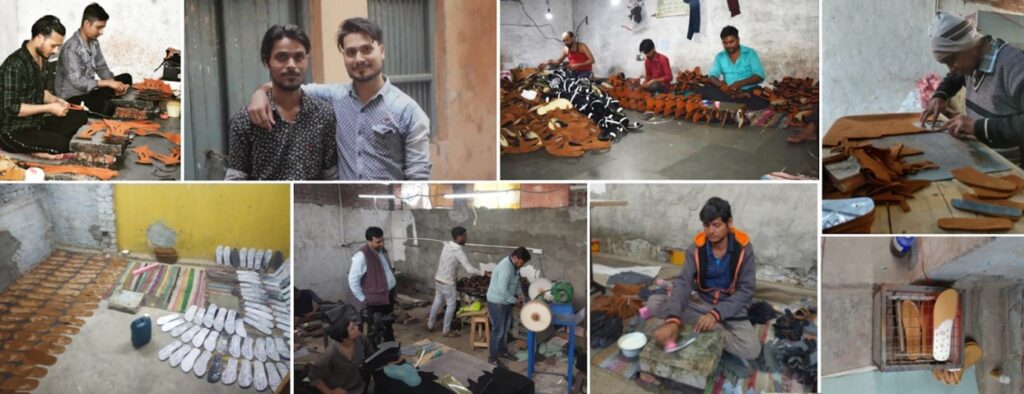
Collaborations come with Challenges
We were extensively helping out artisans working for us by providing them with machines and financial aid, in order for them to perform better. However, in areas where there were large numbers of them, catering to each one of them was difficult. They were hesitant to come together to form a self-help group so they could not get any Government help meant for incubating combined efforts for the artisanal sector. To resolve the working capital problem of these artisans we now collaborated with a fintech NBFC to provide an easy line of credit to the un-bankable artisans to meet their working capital needs and ease our burden of financial assistance. Which ultimately freed our resources to help more footwear artisans. This was one of the main challenges we faced initially.
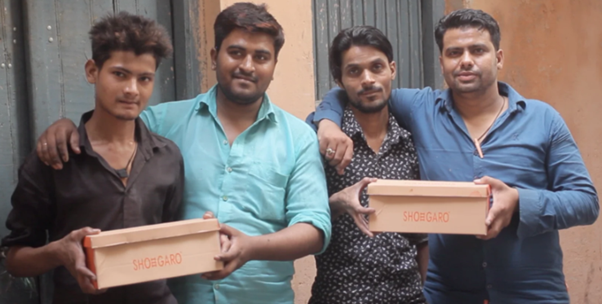
Women artisans readily formed groups and sought support from NGOs which made it easy for us to help them through our business.
Good returns paving way for good deeds
I believe profit is a great way to expand your cause. Even if you are an NGO, a little profit in an alternative way will definitely help cater a bigger community of artisans in the future. Hence, we are focusing on building a profitable business to stay motivated and increase the size of our artisan community.
NICEorg wishes them the best of luck in their journey ahead!
If your cultural enterprise is in any of our five focus sectors and you would be interested in being featured, write to us at namaste@niceorg.in
